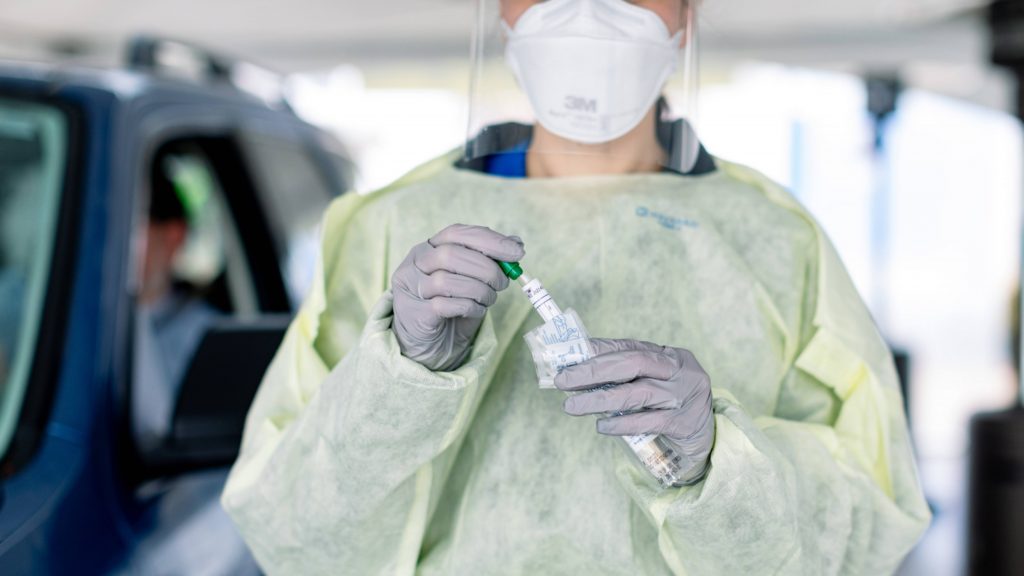
COVID-19 can be diagnosed several ways when looking for active infection.
"The most common way that testing is done is with a swab into the nose or into the nasal pharyngeal area," says Dr. Stacey Rizza, a Mayo Clinic infectious diseases expert. "This polymerase chain reaction (PCR) test is essentially a test looking for the genetic material of the virus." If it's positive, it means that person is infected with SARS-CoV-2, the coronavirus that causes COVID-19.
Dr. Rizza says, "There are other ways to determine if somebody has been previously exposed to COVID-19, which is through a serology blood test." She adds that, "current infection can also be diagnosed by using a blood test which looks for certain proteins or antigens. But the most sensitive test for active infection right now, is looking for that genetic material."
Watch: Dr. Rizza discusses diagnosing and treating COVID-19.
Journalists: Sound bites with Dr. Stacey Rizza are in the downloads at the end of the post. Please courtesy "Stacey Rizza M.D. / Infectious Diseases / Mayo Clinic."
And Dr. Rizza explains there are several approaches to treating COVID-19.
"The standard of care, as it is now, is an antiviral medicine called Remdesivir," says Dr. Rizza. "People also use other supportive care like oxygen if somebody’s having difficulty breathing or blood pressure support, or increasing fluids to help maintain people feeling healthy."
Dr. Rizza says there are a number of clinical trials that are looking at other antiviral medicines, as well as modulators of the immune system that could prevent people from getting very sick in the later phases of the disease.
"Also, steroids has been shown to be helpful for people who are extremely sick, or are on ventilators, or are requiring significant amounts of oxygen support," adds Dr. Rizza.
Emergency warning signs to watch for
If a person with COVID-19 experiences emergency warning signs, medical attention is needed immediately. Call 911 or your local emergency number if the sick person can't be woken up or you notice any emergency signs, including:
- Trouble breathing
- Persistent chest pain or pressure
- New confusion
- Bluish lips or face
- Inability to stay awake
Related information:
- How do COVID-19 antibody tests differ from diagnostic tests?
- Who should get COVID-19 testing?
- Mayo Clinic Q&A podcast: Understanding COVID-19 testing
- Mayo Clinic’s COVID-19 tracking tool provides latest local data, expert guidance
___________________________
Information in this post was accurate at the time of its posting. Due to the fluid nature of the COVID-19 pandemic, scientific understanding, along with guidelines and recommendations, may have changed since the original publication date.
For more information and all your COVID-19 coverage, go to the Mayo Clinic News Network and mayoclinic.org.







